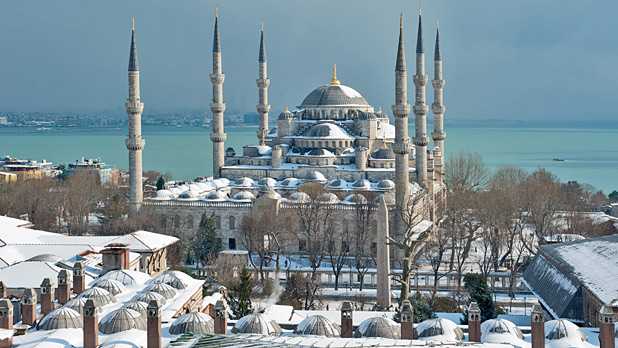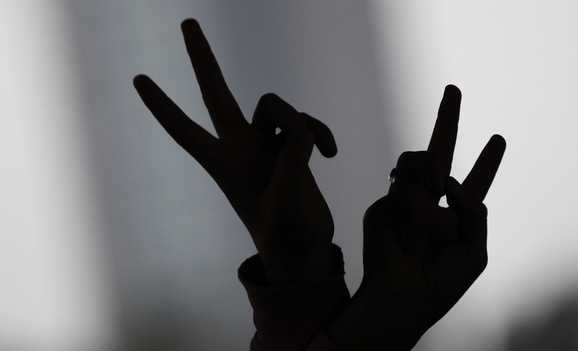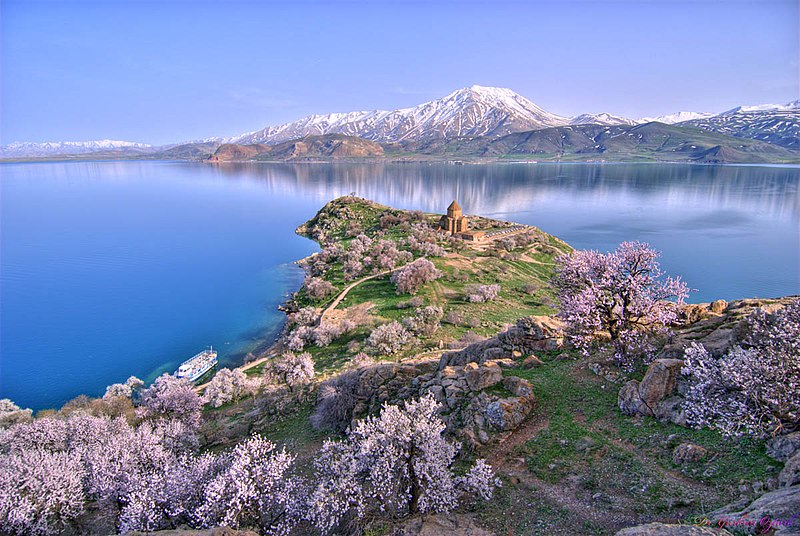By Rodger Baker
On Aug. 4, four days before the start of the Beijing Olympics, two ethnic Uighurs drove a stolen dump truck into a group of some 70 Chinese border police in the town of Kashi in Xinjiang, killing at least 16 of the officers. The attackers carried knives and home-made explosive devices and had also written manifestos in which they expressed their commitment to jihad in Xinjiang. The incident occurred just days after a group calling itself the Turkistan Islamic Party (TIP) claimed responsibility for a series of recent attacks and security incidents in China and warned of further attacks targeting the Olympics.
Chinese authorities linked the Aug. 4 attack to transnational jihadists, suggesting the involvement of the East Turkistan Islamic Movement (ETIM), which Beijing has warned is the biggest terrorist threat to China and the Olympics. Despite the Chinese warnings and TIP claims and the intensified focus on the Uighurs because of the Aug. 4 attack, there is still much confusion over just who these Uighur or Turkistani militants are.
The Uighurs, a predominately Muslim Turkic ethnic group largely centered in China’s northwestern Xinjiang Uighur Autonomous Region, have their own culture, language and written script distinct from their Han Chinese counterparts. Uighur ethnic nationalists and Islamist separatists have risen several times to challenge Chinese control over Xinjiang, but the Uighur independence movement remains fractured and frequently at odds with itself. However, recent evolutions within the Islamist militant Uighur movement, including growing links with transnational jihadist groups in Central and Southwest Asia, may represent a renewed threat to security in China.
Origins in Xinjiang
Uighur nationalism traces its origins back to a broader Turkistan, stretching through much of modern day Xinjiang (so-called “East Turkistan”) and into Central Asia. East Turkistan was conquered by the Manchus in the mid-1700s and, after decades of struggle, the territory was annexed by China, which later renamed it Xinjiang, or “New Territories.” A modern nation-state calling itself East Turkistan arose in Xinjiang in the chaotic transition from imperial China to Communist China, lasting for two brief periods from 1933 to 1934 and from 1944 to 1949. Since that time, “East Turkistan” has been, more or less, an integral part of the People’s Republic of China.
The evolution of militant Uighur separatism — and particularly Islamist-based separatism — has been shaped over time by both domestic and foreign developments. In 1940, Hizbul Islam Li-Turkistan (Islamic Party of Turkistan or Turkistan Islamic Movement ) emerged in Xinjiang, spearheading a series of unsuccessful uprisings from the 1940s through 1952, first against local warlords and later against the Communist Chinese.
In 1956, as the “Hundred Flowers” was blooming in China’s eastern cities, and intellectuals were (very briefly) allowed to air their complaints and suggestions for China’s political and social development, a new leadership emerged among the Uighur Islamist nationalists, changing the focus from “Turkistan” to the more specific “East Turkistan,” or Xinjiang. Following another failed uprising, the Islamist Uighur movement faded away for several decades, with only minor sparks flaring during the chaos of the Cultural Revolution.
In 1979, as Deng Xiaoping was launching China’s economic opening and reform, there was a coinciding period of Islamic and ethnic revival in Xinjiang, reflecting the relative openness of China at the time. During this time, one of the original founders of Hizbul Islam Li-Turkistan, Abdul Hakeem, was released from prison and set up underground religious schools. Among his pupils in the 1980s was Hasan Mahsum, who would go on to found ETIM.
The 1980s were a chaotic period in Xinjiang, with ethnic and religious revivalism, a growing student movement, and public opposition to China’s nuclear testing at Lop Nor. Uighur student protests were more a reflection of the growing student activism in China as a whole (culminating in the 1989 Tiananmen Square incident) than a resurgence of Uighur separatism, but they coincided with a general movement in Xinjiang to promote literacy and to refocus on religious and ethnic heritage. Amid this revival, several Uighur separatist or Islamist militant movements emerged.
A critical moment occurred in April 1990, when an offshoot of the Uighur Islamist militant movement was discovered plotting an uprising in Xinjiang. The April 5 so-called “Baren Incident” (named for the city where militants and their supporters faced off against Chinese security forces) led Beijing to launch dragnet operations in the region, arresting known, suspected or potential troublemakers — a pattern that would be repeated through the “Strike Hard” campaigns of the 1990s. Many of the Uighurs caught up in these security campaigns, including Mahsum, began to share, refine and shape their ideology in prisons, taking on more radical tendencies and creating networks of relations that could be called upon later. From 1995 to 1997, the struggle in Xinjiang reached its peak, with increasingly frequent attacks by militants in Xinjiang and equally intensified security countermeasures by Beijing.
It was also at this time that China formed the Shanghai Cooperation Organization (SCO), enlisting Central Asian assistance in cracking down on Uighur militants, many of whom had fled China. In some ways this plan backfired, as it provided common cause between the Uighurs and Central Asian militants, and forced some Uighur Islamist militants further west, to Pakistan and Afghanistan, where they would link up with the Taliban, al Qaeda, and the Islamic Movement of Uzbekistan (IMU), among others.
Among those leaving China was Mahsum, who tried to rally support from the Uighur diaspora in Saudi Arabia, Pakistan and Turkey but was rebuffed. Mahsum and a small group of followers headed to Central Asia and ultimately Afghanistan, where he established ETIM as a direct successor to his former teacher’s Hizbul Islam Li-Turkistan. By 1998, Kabul-based ETIM began recruiting and training Uighur militants while expanding ties with the emerging jihadist movement in the region, dropping the “East” from its name to reflect these deepening ties. Until the U.S. invasion of Afghanistan in 2001, ETIM focused on recruiting and training Uighur militants at a camp run by Mahsum and Abdul Haq, who is cited by TIP now as its spiritual leader.
With the U.S. attack on Afghanistan in October 2001, ETIM was routed and its remnants fled to Central Asia and Pakistan. In January 2002, Mahsum tried to distance ETIM from al Qaeda in an attempt to avoid having the Uighur movement come under U.S. guns. It did not work. In September 2002, the United States declared ETIM a terrorist organization at the behest of China. A year later, ETIM experienced what seemed to be its last gasps, with a joint U.S.-Pakistani operation in South Waziristan in October 2003 killing Hasan Mahsum.
A Movement Reborn?
Following Mahsum’s death, a leaderless ETIM continued to interact with the Taliban and various Central Asian militants, particularly Uzbeks, and slowly reformed into a more coherent core in the Pakistan/Afghanistan frontier. In 2005, there were stirrings of this new Uighur Islamist militant group, the Turkistan Islamic Party (TIP), which established a robust presence on the Internet, posting histories of the Uighur/Turkistan people in western China and Central Asia and inspirational videos featuring Mahsum. In 2006, a new video surfaced calling for jihad in Xinjiang, and later that year there were reports that remnants of ETIM had begun re-forming and moving back into far western Xinjiang.
It was also around this time that Beijing began raising the specter of ETIM targeting the Olympics — a move seen at the time as primarily an excuse for stricter security controls. In early January 2007, Beijing raided a camp of suspected ETIM militants near the Xinjiang border with Tajikistan, and a year later raided another suspected camp in Urumchi, uncovering a plot to carry out attacks during the Olympics. This was followed in March by a reported attempt by Uighur militants to down a Chinese airliner with gasoline smuggled aboard in soda cans.
Publicly, the Uighur militant issue was quickly swept aside by the Tibetan uprising in March, leaving nearly unnoticed an anti-government protest in Hotan and a series of counterterrorism raids by Chinese security forces in late March and early April that reportedly found evidence of more specific plots to attack Beijing and Shanghai during the Olympics.
In the midst of this security campaign, TIP released a video, not disseminated widely until late June, in which spokesman Commander Seyfullah laid out a list of grievances against Beijing and cited Abdul Haq as calling on Uighur Islamist militants to begin strikes against China. The video also complained that the “U.S.-led Western countries listed the Turkistan Islamic Party as one of the international terrorist organizations,” an apparent reference to the United States’ 2002 listing of the ETIM on the terrorist exclusion list.
In addition to linking the TIP to the ETIM, the April video also revealed some elements of the movement’s evolution since the death of Mahsum. Rather than the typical rhetoric of groups closely linked to the Wahabi ideology of al Qaeda, TIP listed its grievances against Beijing in an almost lawyer-like fashion, following more closely the pattern of Hizb al-Tahrir (HT), a movement active in Central Asia advocating nonviolent struggle against corrupt regimes and promoting the return of Islamic rule. Although HT officially renounces violence as a tool of political change, it has provided an abundance of zealous and impatient idealists who are often recruited by more active militant organizations.
The blending of the HT ideologies with the underlying principles of Turkistan independence reflects the melding of the Uighur Islamist militancy with wider Central Asian Islamist movements. Fractures in HT, emerging in 2005 and expanding thereafter, may also have contributed to the evolution of TIP’s ideology; breakaway elements of HT argued that the nonviolent methods espoused by HT were no longer effective.
What appears to be emerging is a Turkistan Islamist movement with links in Central Asia, stretching back to Afghanistan and Pakistan, blending Taliban training, transnational jihadist experiential learning, HT frameworks and recruiting, and Central Asian ties for support and shelter. This is a very different entity than China has faced in the past. If the TIP follows the examples set by the global jihadist movement, it will become an entity with a small core leadership based far from its primary field of operations guiding (ideologically but not necessarily operationally) a number of small grassroots militant cells.
The network will be diffuse, with cells operating relatively independently with minimal knowledge or communication among them and focused on localized goals based on their training, skills and commitment. This would make the TIP less of a strategic threat, since it would be unable to rally large numbers of fighters in a single or sustained operation, but it would also be more difficult to fight, since Beijing would be unable to use information from raiding one cell to find another.
This appears to be exactly what we are seeing now. The central TIP core uses the Internet and videos as psychological tools to trigger a reaction from Beijing and inspire militants without exposing itself to detection or capture. On July 25, TIP released a video claiming responsibility for a series of attacks in China, including bus bombings in Kunming, a bus fire in Shanghai and a tractor bombing in Wenzhou. While these claims were almost certainly exaggerated, the Aug. 4 attack in Xinjiang suddenly refocused attention on the TIP and its earlier threats.
Further complicating things for Beijing are the transnational linkages ETIM forged and TIP has maintained. The Turkistan movement includes not only China’s Uighurs but also crosses into Uzbekistan, parts of Kazakhstan, Kyrgyzstan and Tajikistan and spreads back through Central Asia all the way to Turkey. These linkages may have been the focus of quiet security warnings beginning around March that Afghan, Middle Eastern and Central Asian migrants and tourists were spotted carrying out surveillance of schools, hotels and government buildings in Beijing and Shanghai — possibly part of an attack cycle.
The alleged activities seem to fit a pattern within the international jihadist movement of paying more attention to China. Islamists have considered China something less imperialistic, and thus less threatening, than the United States and European powers, but this began changing with the launch of the SCO, and the trend has been accelerating with China’s expanded involvement in Africa and Central Asia and its continued support for Pakistan’s government. China’s rising profile among Islamists has coincided with the rebirth of the Uighur Islamist militant movement just as Beijing embarks on one of its most significant security events: the Summer Olympics.
Whatever name it may go by today — be it Hizbul Islam Li-Turkistan, the East Turkistan Islamic Movement or the Turkistan Islamic Party — the Uighur Islamist militant movement remains a security threat to Beijing. And in its current incarnation, drawing on internationalist resources and experiences and sporting a more diffuse structure, the Uighur militancy may well be getting a second wind.
Tell Stratfor What You Think
This report may be forwarded or republished on your website with attribution to www.stratfor.com





